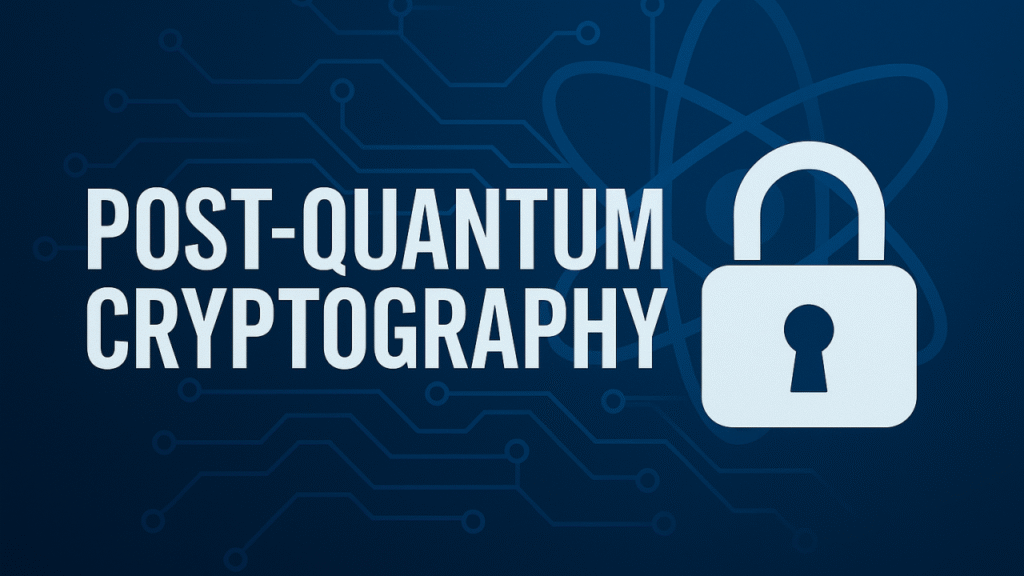
As technology continues to advance, one of the biggest threats to modern cybersecurity is the rise of quantum computing. While quantum computers will bring massive breakthroughs in science, medicine, and AI, they also have the potential to break today’s encryption systems within minutes. To protect sensitive information from this future threat, a new field has emerged—Post Quantum Cryptography.
But what exactly is Post Quantum Cryptography, and why should businesses, governments, and everyday users care? This detailed guide explains everything you need to know.
What Is Post Quantum Cryptography?
Post Quantum Cryptography (PQC) refers to cryptographic algorithms designed to be secure against attacks from quantum computers. These new algorithms replace or upgrade traditional encryption methods—such as RSA and ECC—that quantum computers could easily break using advanced mathematical power.
In simple terms:
- Today’s encryption is strong… but not safe from quantum computers.
- PQC is the next generation of encryption designed to survive the quantum era.
- It protects data now and in the future—even decades from today.
PQC can run on existing computers, meaning organisations can upgrade their security without needing quantum hardware.
Why Are Quantum Computers a Threat?
Traditional encryption methods rely on mathematical problems that are extremely hard for classical computers to solve.
Quantum computers, however, can use algorithms like Shor’s algorithm to break these encryptions thousands of times faster.
Quantum computing could break:
- RSA encryption
- Elliptic Curve Cryptography (ECC)
- Diffie-Hellman key exchange
- Many modern security protocols
This affects everything from online banking to national security.
Without Post Quantum Cryptography, once powerful quantum computers are widely available, data stored today could be decrypted in the future—a threat known as “harvest now, decrypt later.”
Why Does Post Quantum Cryptography Matter?
1. It Protects Against Future Quantum Attacks
Cybercriminals, hackers, and hostile nations are already collecting encrypted data today. They plan to decrypt it once quantum computers become powerful enough.
PQC ensures encrypted data remains secure even decades from now.
2. It Secures Critical Industries
Industries most at risk from quantum threats include:
- Banking & finance
- Healthcare
- Government & defence
- Telecom & networks
- Cloud service providers
- Energy & infrastructure
Post Quantum Cryptography protects sensitive data across all these sectors.
3. It Helps Organisations Stay Compliant
Regulatory bodies around the world are preparing for the quantum transition. NIST (National Institute of Standards and Technology) in the US has already selected the first approved PQC algorithms.
Businesses will soon be required to upgrade to quantum-safe encryption to maintain:
- Data privacy
- Industry compliance
- Customer trust
- Secure operations
Early adoption of PQC reduces long-term compliance risks.
4. It Ensures Long-Term Data Security
Some information must remain secure for 20+, 30+, or even 50+ years, such as:
- Medical records
- Government files
- Confidential business contracts
- Intellectual property
- Personal identity data
- Financial transactions
Without PQC, long-term data is vulnerable to future decryption.
5. It Is the Foundation of “Quantum-Ready” Cybersecurity
Adopting Post Quantum Cryptography prepares organisations for the next generation of cyber threats. It’s a key part of becoming quantum-ready, which includes:
- Upgrading encryption
- Testing PQC algorithms
- Implementing hybrid cryptography
- Building secure communication networks
Companies that prepare now will avoid costly emergency upgrades later.
How Does Post Quantum Cryptography Work?
PQC algorithms are designed to resist quantum attack methods by using:
- Complex mathematical structures
- Lattice-based cryptography
- Hash-based signatures
- Code-based cryptography
- Multivariate polynomial systems
These approaches are extremely difficult for both classical and quantum computers to break.
NIST’s approved PQC algorithms include:
- CRYSTALS-Kyber (encryption)
- CRYSTALS-Dilithium (digital signatures)
These are becoming global standards for quantum-safe security.
Final Thoughts
Quantum computing is no longer science fiction—it’s a rapidly developing reality. While this technology will unlock countless innovations, it also brings major risks to current cybersecurity systems. Post Quantum Cryptography offers an essential solution, ensuring that data remains safe today, tomorrow, and long into the quantum future.
By adopting PQC now, organisations protect themselves from future attacks, maintain compliance, and strengthen their long-term digital security.

